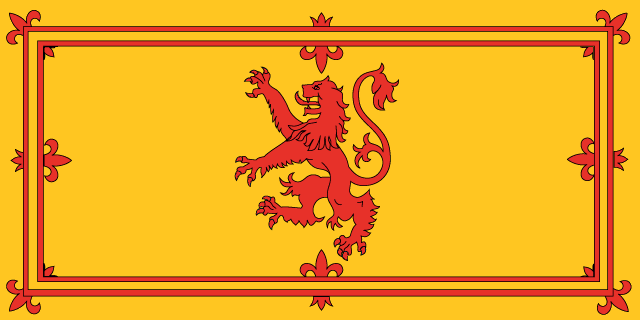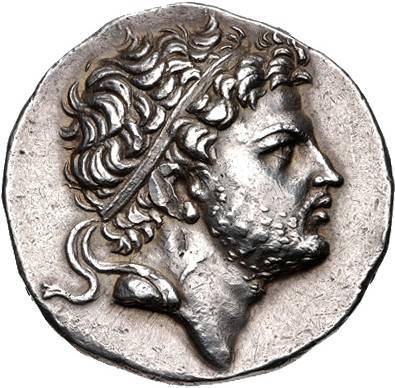The origin of the Gordon clan in Scotland was not Gaelic. The Gordon clan is originally from Normandy, where their ancestors are said to have had large possessions. From the great antiquity of the race, many fabulous accounts have been given of the descent of the Gordons. Some derive them from a city of Macedonia, called Gordonia (Close to modern day Gevgelija).
Perseus' one son, Alexander, was still a child when Perseus was conquered by the Romans, and after the triumph of Aemilius Paullus in 167 BC, was kept in custody at Alba, together with his father. He became a skillful toreutes, learned the Latin language, and became a public notary.
The favourite Scottish order of battle somewhat resembled the Macedonian phalanx. Their infantry formed a compact body, armed with long spears, impenetrable even to the men-at-arms of the age, though well mounted, and arrayed in complete proof.
- Sir Walter Scott
The alternative Scottish flag:

What do you think of it?
We can also mention the folklore music instrument - Gaida as common heritage.
TrueMacedonian, can you help with some matherials on this subject?
Perseus' one son, Alexander, was still a child when Perseus was conquered by the Romans, and after the triumph of Aemilius Paullus in 167 BC, was kept in custody at Alba, together with his father. He became a skillful toreutes, learned the Latin language, and became a public notary.
The favourite Scottish order of battle somewhat resembled the Macedonian phalanx. Their infantry formed a compact body, armed with long spears, impenetrable even to the men-at-arms of the age, though well mounted, and arrayed in complete proof.
- Sir Walter Scott
The alternative Scottish flag:

What do you think of it?
We can also mention the folklore music instrument - Gaida as common heritage.
TrueMacedonian, can you help with some matherials on this subject?



 ) kiddin'
) kiddin'







Comment